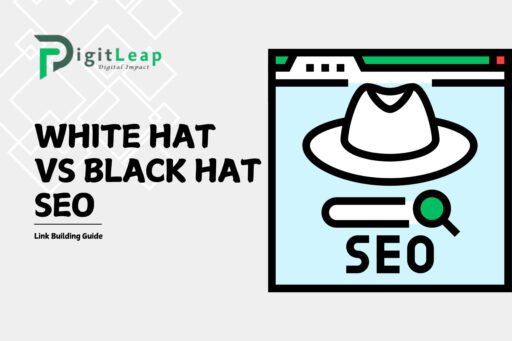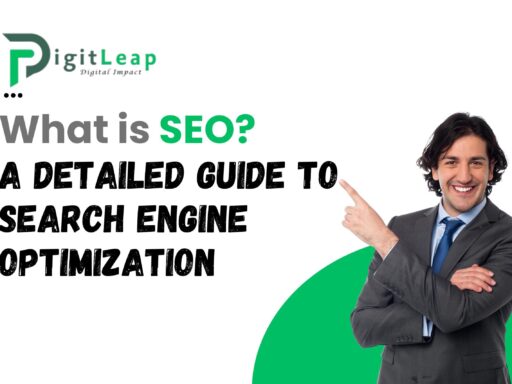White Hat vs Black Hat SEO: Link Building Guide
Link building is one of the most important strategies when it comes to improving your website’s visibility in search engines. But not all link-building techniques are created equal. In the SEO world, you’ll often hear about two contrasting methods: White Hat and Black Hat SEO. These terms describe ethical and unethical approaches to boosting your site’s search engine rankings, respectively. While the goal of both is to increase visibility, the strategies they employ are vastly different.
In this guide, we’ll dive deep into the distinctions between White Hat and Black Hat SEO practices, focusing on link building. We’ll also discuss why ethical practices, like White Hat SEO, are vital for long-term success and how using Black Hat tactics can have severe consequences for your website.
What is Link Building in SEO?
Link building is the process of acquiring hyperlinks from other websites to your own. These links act as “votes of confidence” from one site to another, signaling to search engines that your website is a credible and valuable resource. The more high-quality links pointing to your site, the more likely it is to rank higher in search engine results.
However, the key is quality. Not all links are beneficial, and not all strategies to acquire them are recommended. This is where the difference between White Hat and Black Hat SEO comes into play.
Understanding White Hat SEO
White Hat SEO refers to ethical SEO practices that align with search engine guidelines, primarily those set by Google. These techniques focus on improving the user experience and offering genuine value, ensuring long-term growth without risking penalties.
White Hat Link Building Strategies:
- Creating High-Quality Content: The foundation of any successful White Hat strategy is valuable content. By consistently producing insightful, relevant, and shareable content, other websites are more likely to link back to your site naturally.
- Guest Blogging: Writing high-quality articles for reputable websites in your industry is an excellent way to earn backlinks. The key here is to provide value to their audience while subtly linking back to your content in a natural way.
- Broken Link Building: This method involves finding broken links on other websites and suggesting your own content as a replacement. It’s a win-win: they fix their broken link, and you gain a backlink.
- Building Relationships: Networking with other professionals and influencers in your industry can lead to organic backlinks. Building strong relationships can lead to partnerships, collaborations, and opportunities for content promotion.
- Skyscraper Technique: This approach involves finding existing content with lots of backlinks, creating an even better version, and reaching out to those linking sites to promote your superior resource.
What is Black Hat SEO?
In contrast, Black Hat SEO involves manipulative tactics that violate search engine guidelines. While these methods may offer short-term gains, they come with a high risk of penalties, including being de-indexed (removed) from search engines entirely.
Black Hat Link Building Strategies:
- Buying Links: One of the most common Black Hat tactics is paying for backlinks. While it may seem like a quick and easy way to get links, Google’s algorithm can detect unnatural link patterns, and your site could be penalized.
- Private Blog Networks (PBNs): These are networks of websites created solely to link back to a main website. While this method can temporarily boost rankings, search engines are becoming increasingly sophisticated at identifying PBNs. Getting caught could result in severe penalties.
- Spammy Blog Comments: Leaving links in blog comments is another Black Hat tactic. Typically, these links are irrelevant and offer no value to the user. Search engines can easily detect this spammy behavior and may penalize your site.
- Link Farms: These are groups of websites that exist solely to create backlinks to each other. While it might seem like a good way to generate numerous backlinks quickly, search engines penalize this unnatural linking behavior.
- Automated Link Building: Using software to generate large amounts of backlinks is another unethical practice. These tools often create low-quality, irrelevant links that do not benefit the user experience and can hurt your rankings.
The Risks of Black Hat SEO
Black Hat SEO may promise quick results, but the consequences can be disastrous. Google and other search engines are continually updating their algorithms to detect and penalize sites that engage in Black Hat tactics. Some risks include:
- Penalties: Google can penalize your website, resulting in a significant drop in rankings or even removal from the search index entirely.
- Damaged Reputation: Once your site is flagged for using unethical practices, it can harm your brand’s credibility and trustworthiness in the eyes of both search engines and users.
- Short-Term Gains, Long-Term Losses: While you may see a temporary spike in traffic, the long-term damage caused by penalties will outweigh any short-term success.
Why White Hat SEO is the Way Forward
White Hat SEO may take longer to show results, but it’s a sustainable and ethical approach that ensures long-term success. By focusing on improving the user experience and providing valuable content, you build trust with your audience and search engines alike. Some benefits include:
- Steady, Long-Term Growth: White Hat SEO leads to consistent improvements in rankings, ensuring your site grows organically over time.
- No Risk of Penalties: Since you’re following the rules, there’s no risk of penalties or being removed from search engine results.
- Builds Brand Credibility: When you focus on providing value, other reputable sites are more likely to link to you, which boosts your credibility in your industry.
Transitioning from Black Hat to White Hat SEO
If you’ve previously used Black Hat SEO tactics, it’s not too late to make a change. Transitioning to White Hat methods requires a commitment to ethical practices and a focus on providing genuine value. Here’s how you can start:
- Audit Your Existing Backlinks: Use tools like Google Search Console or third-party platforms to identify any toxic or low-quality links. Reach out to webmasters to have them removed or use Google’s Disavow Tool.
- Focus on High-Quality Content: Shift your focus to creating valuable, well-researched content that people naturally want to link to and share.
- Build Relationships: Invest in building relationships with influencers, bloggers, and other professionals in your industry. These connections can lead to organic backlink opportunities.
- Monitor Your SEO Progress: Regularly track your rankings and backlinks to ensure you’re adhering to White Hat principles. Adjust your strategies as needed to stay compliant with search engine guidelines.
Conclusion
In the battle between White Hat and Black Hat SEO, the ethical approach always wins in the long run. While Black Hat tactics may seem appealing with their promise of fast results, they ultimately lead to penalties, loss of credibility, and damaged brand reputation. White Hat SEO, on the other hand, offers sustainable growth, builds trust, and secures your website’s future in the ever-evolving digital landscape.
If you’re looking to build a solid, long-term SEO strategy, focusing on White Hat practices like high-quality content, organic link-building, and ethical optimization techniques is key. At DigitLeap, we understand the importance of ethical SEO and are here to help businesses grow their online presence the right way—no shortcuts, just sustainable results.
FAQs
Q.1 What is the main difference between White Hat and Black Hat SEO?
White Hat SEO focuses on ethical practices that follow search engine guidelines, while Black Hat SEO involves manipulative tactics that violate those rules.
Q.2 Is buying backlinks a good strategy?
No, buying backlinks is a Black Hat SEO tactic that can result in penalties from search engines.
Q.3 How can I build backlinks ethically?
Create high-quality content, guest blog, use broken link-building strategies, and build relationships with industry influencers.
Q.4 Can I recover from a Google penalty for using Black Hat SEO?
Yes, but it requires auditing your backlinks, removing or disavowing harmful links, and committing to ethical White Hat practices.
Q.5 Why does White Hat SEO take longer to show results?
White Hat SEO focuses on organic growth and building genuine trust with users and search engines, which takes time but provides long-term success.






